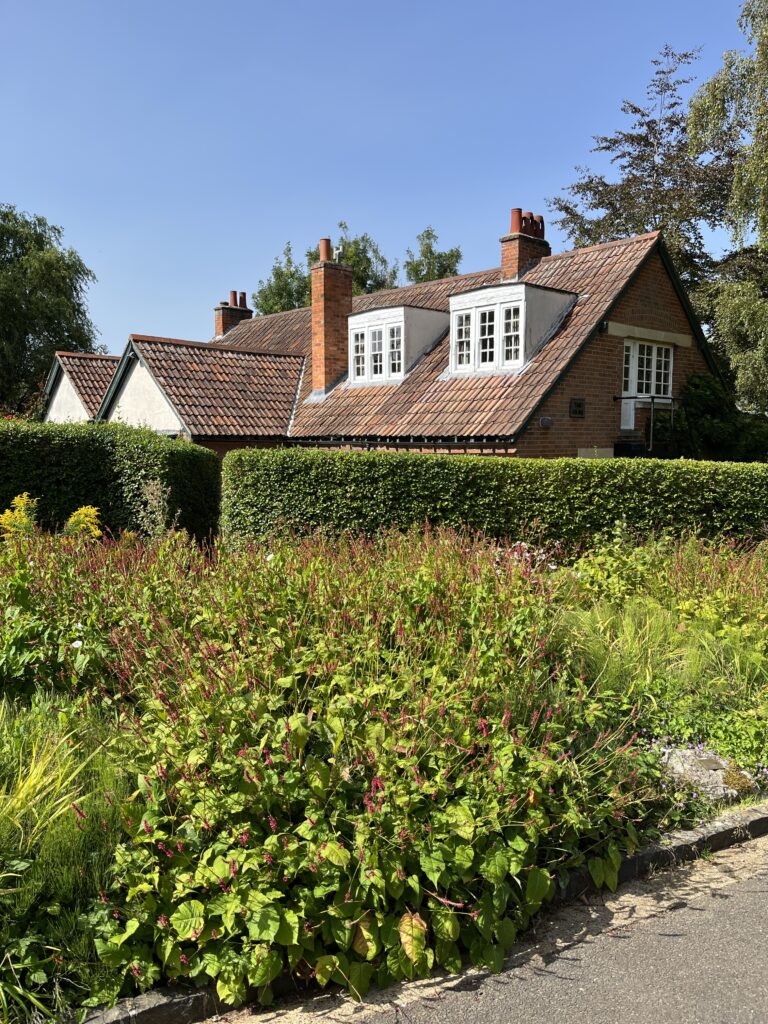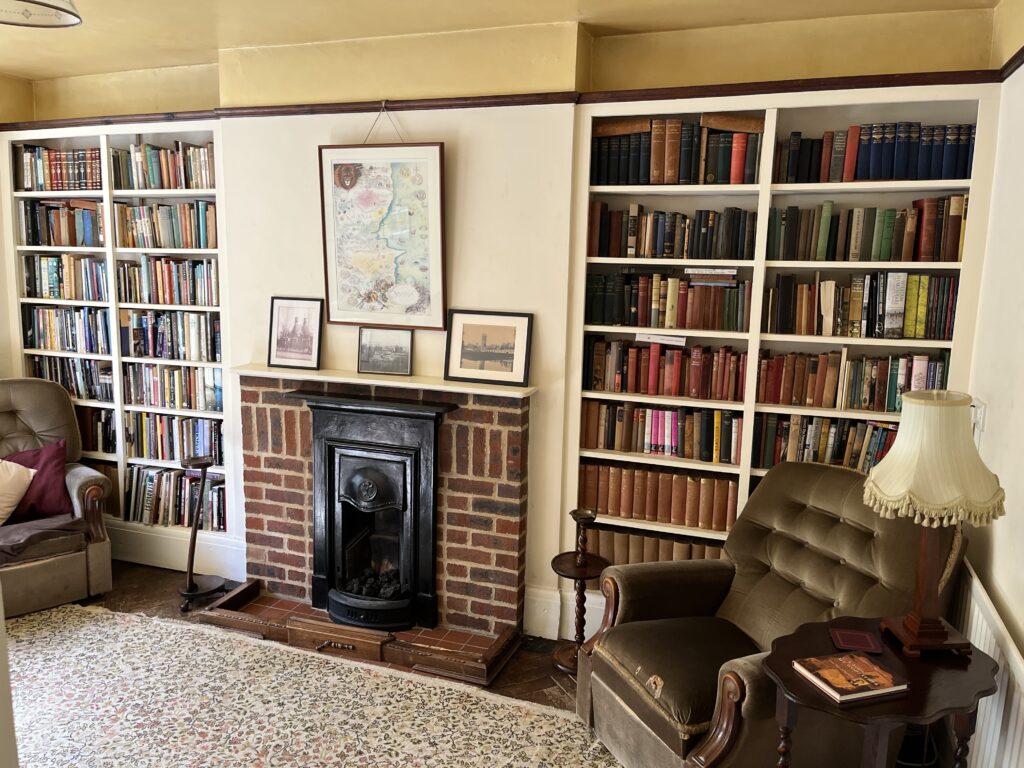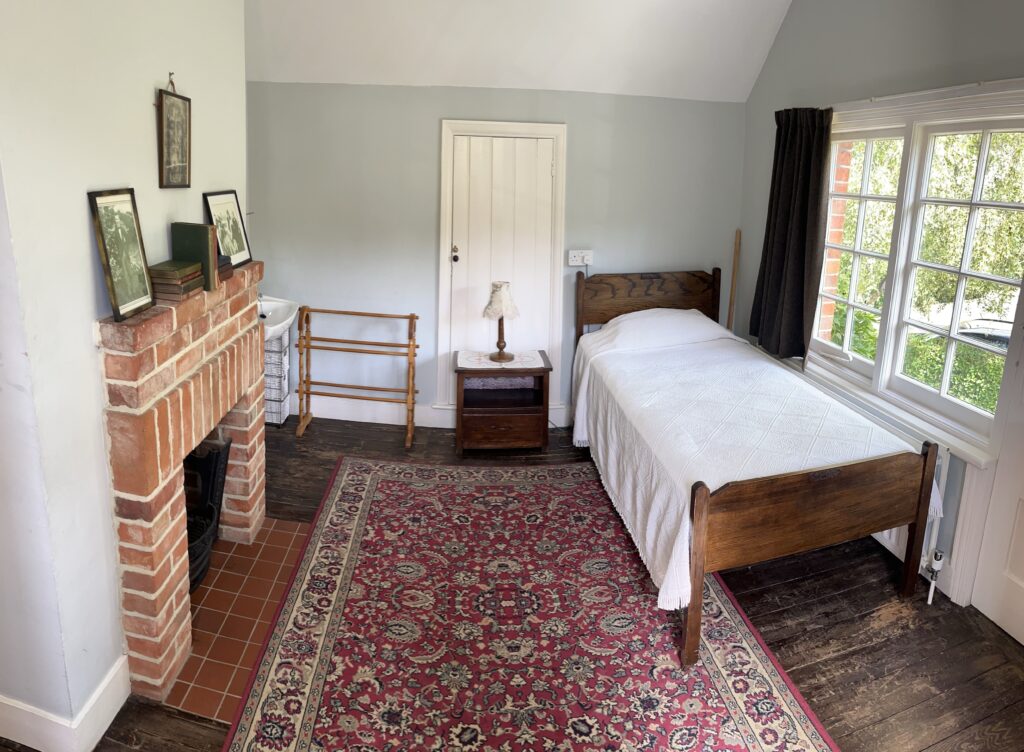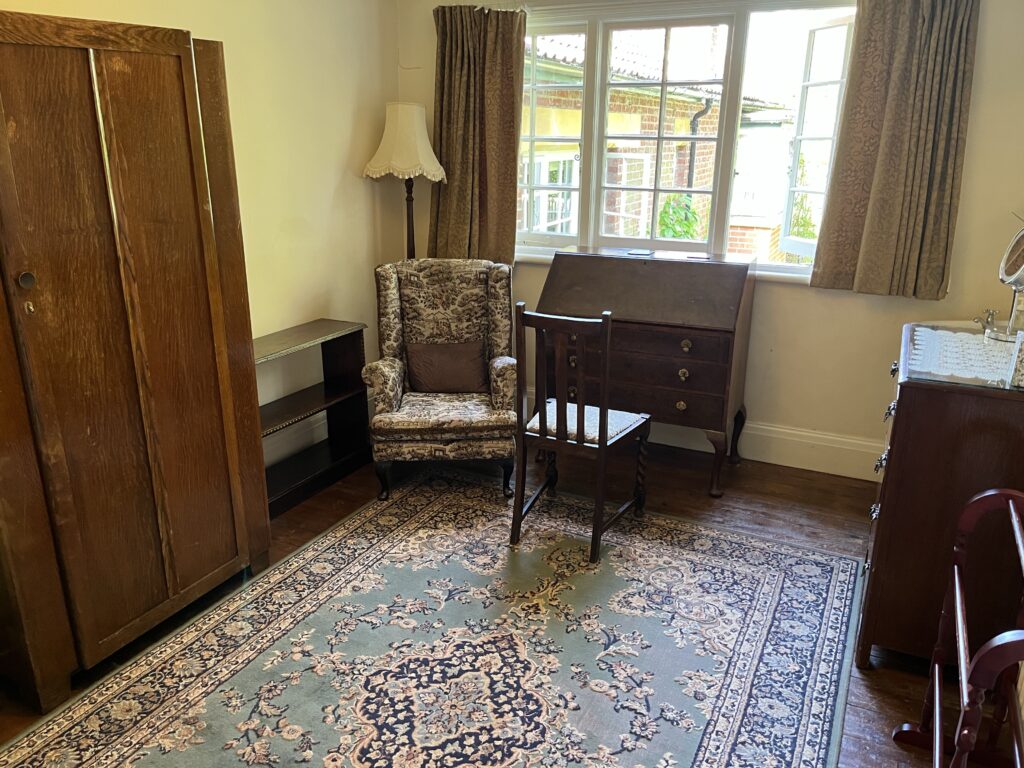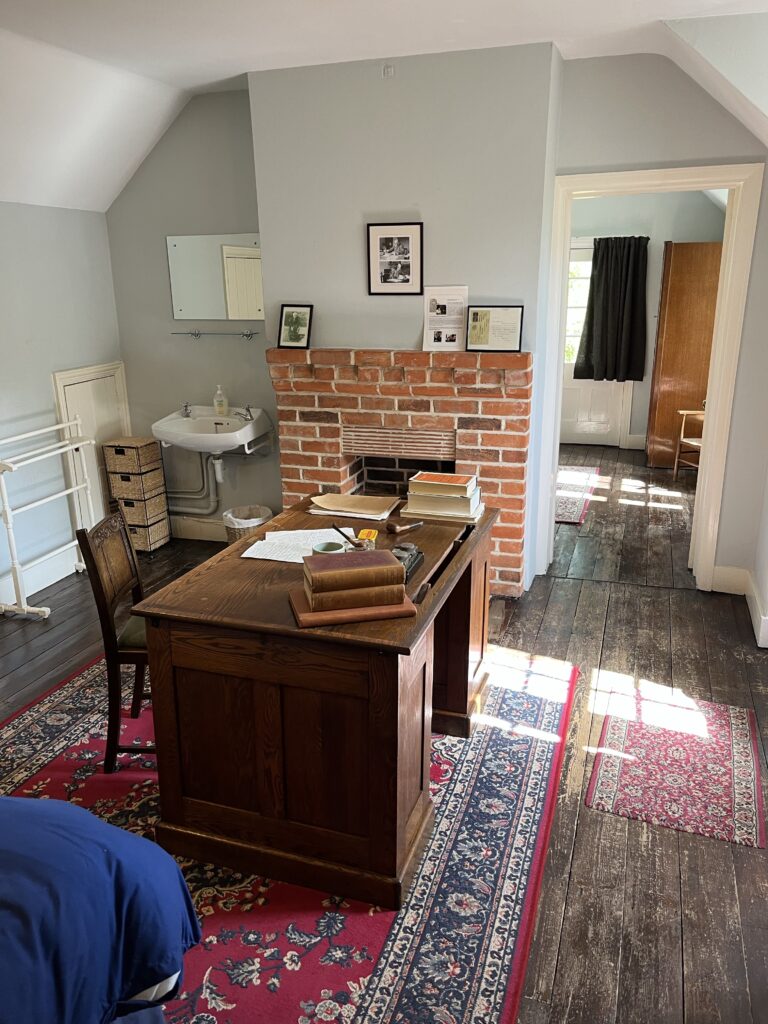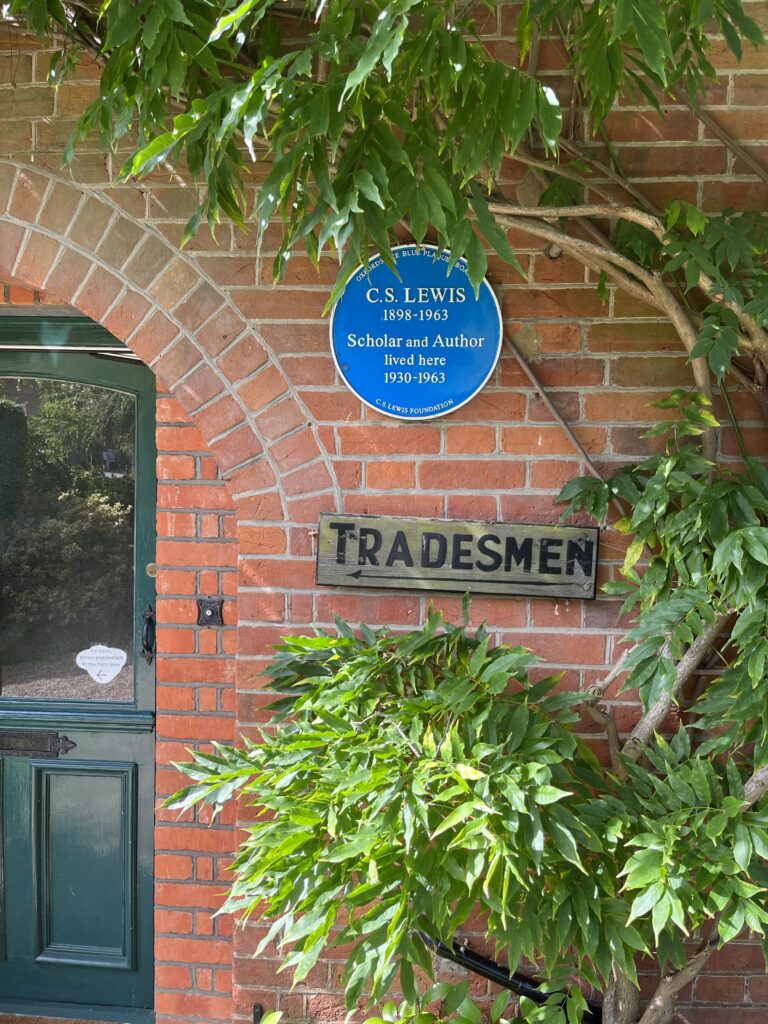
The theme today was books and those who write them. I started in the Bodleian Library. I use the word “I” because I was the only one on the team willing to get up early enough to get in line at 9:00 a.m. to buy a ticket. I can see the inside of my eyelids at home. Why fly halfway across the world to sleep late?
TheBodleian Library is one of the oldest and largest in the world. It is the home of C.S. Lewis and J.R.R. Tolkien letters and original manuscripts, as well as the Gutenberg Bible. Knowing this, I suggested Ann go to the Bodleian and ask to check out the Gutenberg Bible. “Just tell them you will be taking it across the street to the hotel and will return it later in the day, “ I said, “and if they refuse, politely remind them that it is a library. . . . and that you are part of the GSB team, of course.”
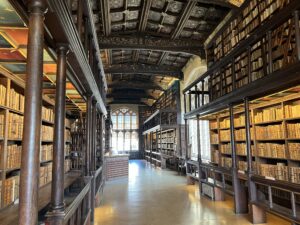
My motive in taking the tour was to see the Duke Humfrey’s Library in the Bodleian. I am a library connoisseur, and I am always looking for ideas on how to improve my own. Duke Humfreys’s did not disappoint, as you can see from the picture. It was also in the Duke Humphrey library where C.S. Lewis spent much time writing his first academic work on medieval literature, The Allegory of Love.
The rest of the team joined me in the afternoon for a rare treat: a visit to C.S. Lewis’s home in Oxford, called The Kilns. We saw almost all the rooms in the home, including Lewis’s den, study, and the room in which died on November 22, 1963.
After visiting Lewis’s home the GSB team went to the Kings Arms pub, where Lewis and the Inklings used to hang. We drank and talked of Lewis and his impact on the world.
From what I’ve read about C.S. Lewis, when he was younger he must have thought if he were to be so fortunate as to be remembered it would be as a poet (he had a book of poetry published when he was 19 years old) or as a scholar of medieval literature. After all, that is what he loved, and studied, and was educated to do.
And yet his biggest influence, what he did that would be a catalyst for changing lives all over the world, was being willing to do a series of lectures on British radio about the basics of Christianity, which he would turn into a small book called, Mere Christianity. Mere Christianity is now considered a spiritual classic and the list of those who found the Lord as a result of reading it reads like a who’s who of the Kingdom.
Lewis was not a theologian, and he was not a minister, but what he was was available. Even though Lewis had not knowingly prepared himself to write such a book, the Lord had prepared him, taking him on a journey to salvation through which he would later retrace his steps to show others the way. And then when the call came, he made himself available to the Lord
As I was thinking about Lewis’s life, I thought of the prophet Isaiah, another man who made himself available for the lord:
“Then I heard the voice of the Lord, saying, ‘Whom shall I send, and who will go for Us?’ Then I said, ‘Here am I. Send me!’”
Isaiah 6:8
We should study, and work, and prepare. It is good to be intentional about our lives. But above all that we must be available for the Lord because what He may have planned for us to change the world may be very different from what we ever expected. GS

